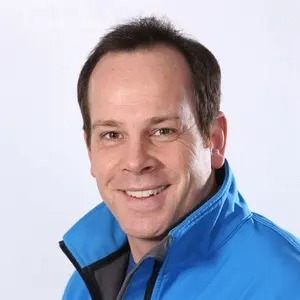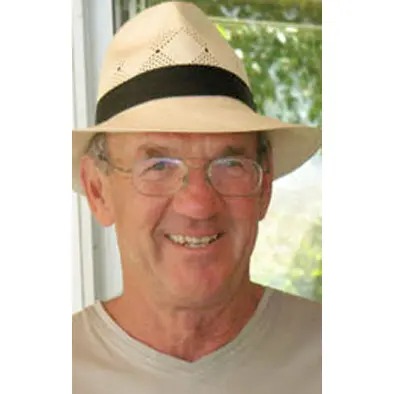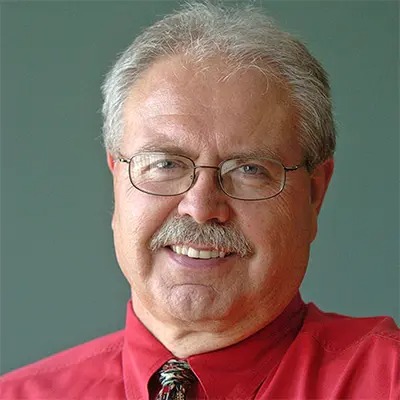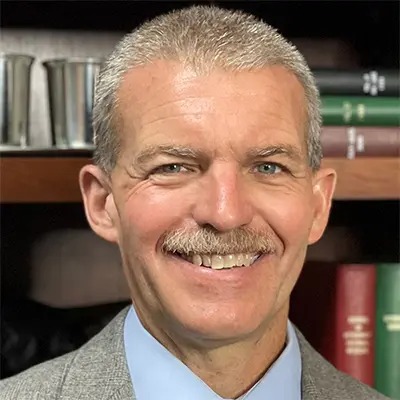Wobbler Surgery (Cervical Stabilization) - Does it actually work?
Species
Equine
Contact Hours
3 Hours - RACE Approved
Language
English
Discipline
Internal Medicine – Endocrinology, Haematology, Infectious Diseases, Parasitology & Oncology
Neurology
Orthopaedics
Sports Medicine
Surgery
Veterinary Partner
Equine



Recorded on: 15th September 2020
Panelists:
Barrie Grant DVM, MS, DACVS, MRCVS – Consultant, CA, USA
Brett Woodie DVM, MS, DACVS – Rood & Riddle Equine Hospital, USA
Steve Reed DVM, DACVIM – Rood & Riddle Equine Hospital, USA
Amy Johnson DVM, PhD, DECEIM – New Bolton Center, USA
Moderator:
Jonathan Anderson BVM&S, DACVS, MRCVS – Rainbow Equine Hospital, UK
CONTENT DESCRIPTION
Cervical vertebral stenotic myelopathy (CVSM) often affects younger horses, is debilitating and carries a guarded to poor prognosis without surgery. Medical management can be attempted but few affected horses respond permanently. The purpose of surgical treatment is to decompress the spinal cord by stabilizing the involved vertebrae in extension, thereby preventing subluxation and repetitive trauma. Is it however fair to subject horses to this surgery, what cases should or shouldn’t be operated, what improvement can one expect and are these horses safe to ride long-term? The international panel of highly-acclaimed surgeons and internists will debate below points in a frank and open exchange:
Diagnosis & Case-Selection
- How can we be so sure of our diagnosis of cervical stenotic myelopathy?
- Should all horses with neurological deficits undergo a myelogram/CT to rule out cord compression before articular facets are injected to limit liability of the veterianian?
- Should cervical radiographs become an integral part of the pre-purchase exam?
- Are there certain types of cases where one should not recommend conservative management?
- Is it fair or worth it to treat horses with cervical compression?
- How to perform a comprehensive work-up, case selection for surgery, surgical technique and long-term results.
- If a patient is presented with a history of falling/stumbling before surgery and the myelogram confirms cord compression, what criteria does one use to determine that the patient will be safe to ride after surgery to avoid owner/veterinarian liability for any injury that might occur.
- Should horses with C6 /C7 transverse processes have surgical fusion before clinical signs of osteoarthrosis of the facets become clinically significant?
Surgical Technique & Decision Making
- Seattle Slew implant vs. locking plate vs. combination of intervertebral devices supplemented with plates or rods.
Post-Operative Management
- What is panel’s experience with horses falling after surgery?
- Discuss post-operative rehabilitation protocols
- How does the surgical technique influence long-term outcome in identical groups
Jonathan Anderson is a director and surgeon at the Rainbow Equine Hospital. He is a Royal Veterinary College Equine Surgical Specialist, a Diplomate of the American College of Veterinary Surgeons and an FEI Veterinary Delegate.
Jonathan graduated from the Edinburgh’s Royal School of Veterinary Studies in 2000, completed an internship year at the San Luis Rey Equine Hospital in California, before moving to the Rainbow Equine Hospital in the UK for 3 years. He went back Stateside to undergo a large animal clinical fellowship at Oregon State Veterinary Teaching Hospital followed by an Equine Surgical Residency at the University of California, Davis. He achieved diplomate status in 2009, remained as a clinical instructor at UC Davis for a year before moving back to the Rainbow Equine Hospital at the end of 2009 to join the surgical team. He has been involved in advancing the use of CT both as diagnostic and intra-operative imaging modality within the equine veterinary field. His main veterinary interests include all things orthopaedic which includes the evaluation, advanced imaging and surgical treatment of horses with cervical stenosis. He is keen to see a sharing of knowledge and equipping of equine vets to recognise and treat horses with this condition.
His biggest asset is his long suffering wife Naomi and he kind of helps to manage a brood of 5 kids which means little time for any other activities although a run in the mountains every so often is where he likes to recharge his batteries once again!
More InfoDr. Barrie Grant is a board certified surgical veterinarian specializing in equine wobblers and cervical stabilization. While teaching at Washington State University, he saw a need to help owners and their horses with cervical cord compression. Working with a human orthopedic surgeon, Dr. George Bagby and another veterinarian, Dr. Pam Wagner, he helped develop the surgical treatment used in horses and people for cervical cord compression (wobblers). Growing up in Canada on his family's ranch, he learned about horses and cattle. Dr. Grant received his DVM from Washington State University in 1967. He did his internship and residency at the University of California at Davis. He returned to WSU to be on the faculty in 1969 and obtained a Masters in Veterinary Medicine in 1972. From WSU, he practiced on the standard bred racing circuit in California for 2 years. He then returned to WSU as head of the Equine division. In 1979, he became a tenured full time professor.
While at WSU, he was on the team that developed the use of diagnostic ultrasound and CT (CAT) scanning and high speed treadmill testing. He also was involved in the development of a practical prosthesis for use in horses requiring amputation, in addition to his involvement in developing a surgical treatment for wobblers.Dr. Grant left WSU in 1990 to join the practice at SLREH, then owned by Doctors Jay and Ethel Rose. In 1995, he became a co-owner of the practice. While at the hospital, he continued to improve the technique that now uses a titanium Seattle Slew implant (basket). He left SLREH in March 2008. Since the summer of 2008, Dr. Grant has been expanding his consulting practice in Bonsall, California. He enjoys surgery and working with veterinarians and their clients, and travels throughout the USA and internationally in this regard. Dr. Grant also works at the Southern California race tracks as a state veterinarian. He is proud to have been honored by his profession and is the recipient of the AAEP Distinguished Educator (Mentor) Award and the ACVS Legends Award.
Proud husband of Vaughan for almost 53 years and two daughters and 4 grandsons.
More InfoOne of only five veterinarians in the world to be board-certified in both large animal internal medicine and neurology, and one of only two veterinarians practicing large animal neurology in the United States, Dr. Johnson has been a clinician at New Bolton Center since 2007 and was appointed to the faculty as assistant professor of large animal internal medicine and neurology in 2011.
As a neurologist, Dr. Johnson focuses on the diagnosis and treatment of diseases affecting the nervous system such as cervical vertebral (neck ) problems, also known as Wobbler syndrome, equine protozoal myeloencephalitis (EPM), and neurologic Lyme disease (neuroborreliosis).
Dr. Johnson received her veterinary degree from Cornell University, where she also completed a residency and became board-certified in large animal internal medicine in 2007. After joining New Bolton Center as a lecturer in 2007, she completed a second residency in neurology at the University of Pennsylvania, becoming board-certified in neurology in 2011.
More InfoDr. Reed earned his Doctorate of Veterinary Medicine at The Ohio State University, followed by a residency at Michigan State University. He started his academic teaching career at Washington State University from 1979-1983. Then he returned to The Ohio State University, where he spent 26 years as a professor and mentor in the Equine Medicine department. Dr. Reed is a Diplomate from the American College of Veterinary Internal Medicine and a noted author and editor of numerous scientific articles and textbooks. He has spoken at many state, national and international meetings.
His primary research interests include Equine Neurologic Diseases. He is currently an internal medicine specialist, a shareholder at Rood & Riddle Equine Hospital, an Emeritus Professor at The Ohio State University and an adjunct professor at the University of Kentucky. He is currently the Chairman of the Grayson-Jockey Club Research Advisory Committee.
More InfoDr. Brett Woodie attended North Carolina State University College of Veterinary Medicine and earned his veterinary degree in 1995. Following graduation from veterinary college he was an intern at The Ohio State University from 1995-1996. Dr. Woodie then entered a surgery residency at The Ohio State University and spent another three years in Columbus, Ohio. During his surgery residency he completed a Master’s of Science degree. He then moved to northern Virginia where he was a clinical instructor for a year in equine surgery at Marion duPont Scott Equine Medical Center. He achieved Diplomate status with the American College of Veterinary Surgeons in 2000. His next job was as an Assistant Professor of Large Animal Surgery at Cornell University College of Veterinary Medicine. During this time his research focus was on equine upper airway disorders. Then in 2003 he had the opportunity to move to Lexington, Kentucky and begin his job with Rood and Riddle Equine Hospital. He has been a surgeon at Rood and Riddle since that time. Diagnosis and treatment of equine upper airway problems and problems related to the cervical spine are two of his main interests. Dr. Woodie has lectured nationally and internationally. He is co-organizer of the Equine Upper Airway Symposium. This symposium is held annually in Lexington, KY.
More InfoVeterinary Student
Online Panel Discussion
USD 20.00
Qualified Vet
Online Panel Discussion
USD 95.00
Intern/Resident/PhD (Requires proof of status)
Online Panel Discussion
USD 70.00
Vet Nurse/Vet Tech (Requires proof of status)
Online Panel Discussion
USD 70.00
If the options you are looking for are unavailable, please contact us.
No tax will be added unless you are a UK taxpayer
Choose currency at checkout



















